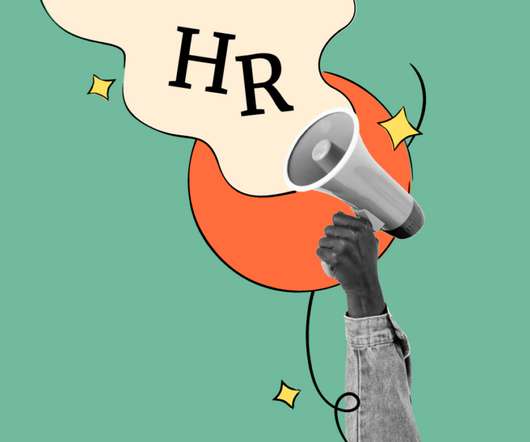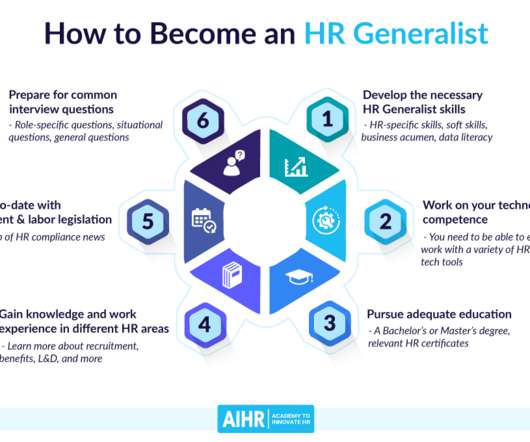HR Generalist Job Description: Everything You Need to Know
Analytics in HR
JULY 5, 2022
As the name suggests, HR Generalists support the business from an HR perspective, managing relevant internal and external activities. HR Generalists manage the employee lifecycle, including employee relations, recruitment, performance management, reward management, and other Human Resources functions in collaboration with HR Specialists.






































Let's personalize your content